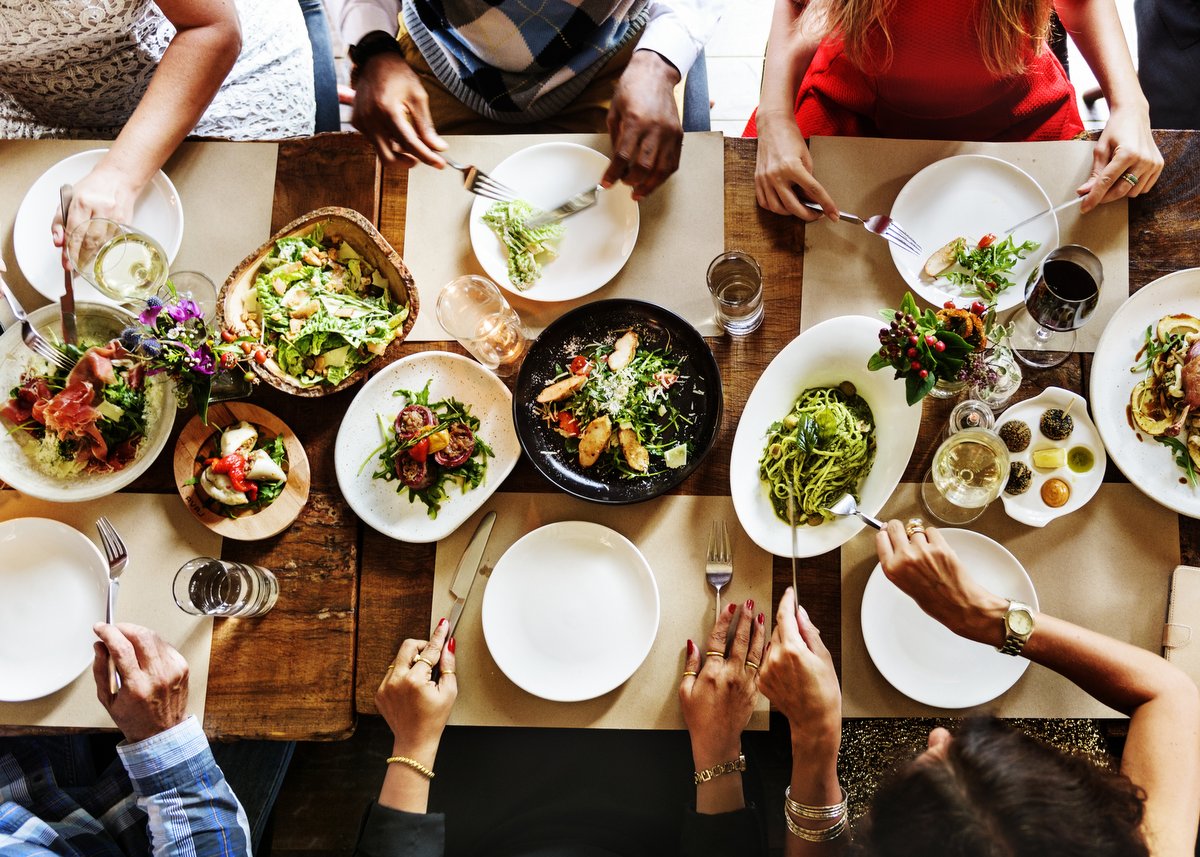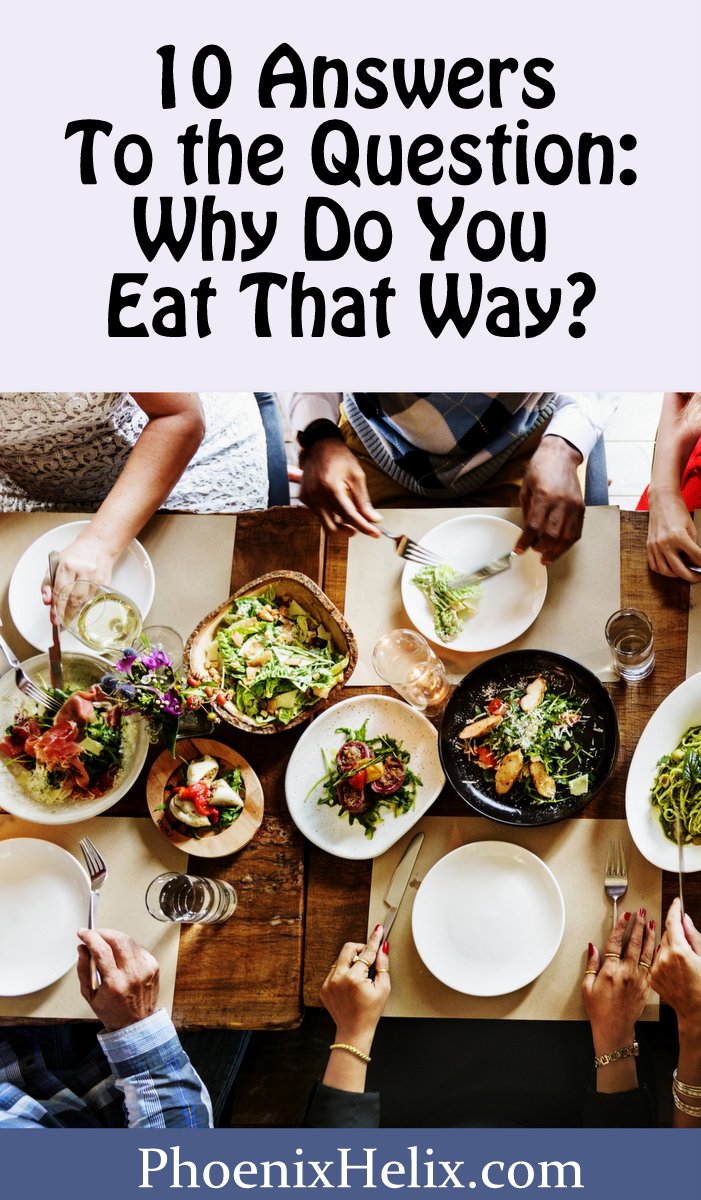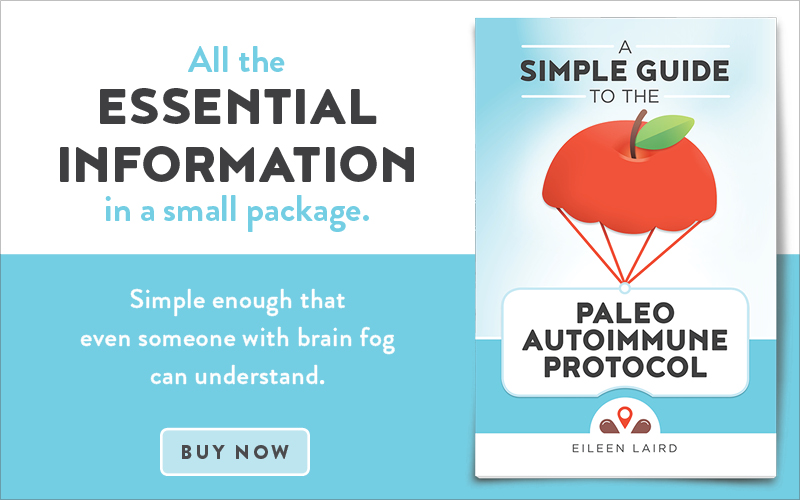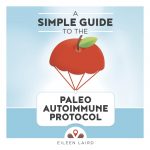
“When we learn to speak, we learn to translate.”
~ Octavio Paz
Questions: a Side Effect of the Paleo Autoimmune Protocol
The Paleo Autoimmune Protocol (AIP) has the potential to make a big difference in your health, which is why so many people with autoimmune disease try this healing diet. But that doesn’t mean it’s easy, and one of the challenges is how other people respond. Friends, family, coworkers, even strangers are likely to notice you’re suddenly eating differently than everyone around you. You turn down the birthday cake at the office or family birthday party. You show up with your own food to a holiday dinner. You ask the waiter extra questions when eating in a restaurant. You serve food in your own home that’s delicious but doesn’t come from a box. Pilar Gerasimo calls this Healthy Deviance because we live in a world where unhealthy is the norm. It’s natural for people to have questions, and it’s helpful to have some quick answers ready. Here are ten answers for a wide variety of situations.
1. Short and polite.
“It’s a medical diet. I have a health condition where certain foods trigger my symptoms, so I choose to avoid those foods.”
This is a great first answer. It’s informative without overwhelming people with too much information. It’s not preachy. It’s not defensive. And the conversation can move onto other things.
2. Slightly longer for those who are curious.
“I have (insert autoimmune diagnosis), and my primary symptoms are (share one or two). Food makes a big difference in how I feel. The way I eat now is a healing diet for me. It’s the difference between being able to live my life fully and joyfully, or having severe autoimmune flares that can disable me. I’m so grateful to have learned this connection for myself. Food’s not a cure for me, but it’s definitely part of my personal healthcare.
Choose this if you’re comfortable sharing more details, and personalize it for your situation. However, don’t feel pressured to share. Not everyone is entitled to personal details about your life. It’s okay to keep your answer brief and choose option one above. But if you choose to share more, a lot of people have never heard of a healing diet. Some may become inspired by what you’re doing. Others may be more supportive of your choices once they realize what’s at stake.
3. When speaking with children.
“You like some foods better than others, right? I have food preferences, too. But for me, it’s not just about taste. Some foods can actually make my body hurt, while other foods make me feel great. I have an illness that makes my body more sensitive. So I do eat yummy foods, but I also make sure they are foods my body loves. It keeps me healthy and happy.”
4. When someone says, “One bite won’t hurt you.”
“That’s actually not true. If I was dieting for weight loss, that may be true, but I’m eating for the health of my immune system, and with autoimmune disease, the immune system is very sensitive. One bite can hurt me.”
5. When someone sees your food choices as a judgement of theirs.
“I eat the way I do because it helps me live a healthier and therefore happier life. It’s not about you at all. Your choices are your own, and I’m not judging you. One of my mantras is “keep your eyes on your own plate.” It’s good advice for us all.
6. When food is someone’s love language, and they feel rejected when you don’t eat it.
“I love you and you’re an amazing cook, so I wish I could eat whatever you cooked without consequences, but autoimmune disease has changed my body. Some ingredients cause inflammation for me now. I know you don’t want your food to hurt me. Can we make a plan to spend some time cooking together and adapt one of your favorite recipes for my healing diet? I would love to spend time with you.”
7. When someone feels sorry for you.
“You don’t need to feel sorry for me. Yes, this way of eating is inconvenient, but it’s worth it for me. I feel so much better when I eat this way. Nothing tastes as good as healthy feels when you have autoimmune disease. I have also found favorite recipes in my new diet. I refuse to feel deprived. Food joy is too important to me.”
8. When someone assumes you have an eating disorder.
“I know you’re saying this out of concern for me, but I assure you that’s not the case. My autoimmune diagnosis is real, and when the immune system becomes hypersensitive, food sensitivities often occur alongside. That’s what happened to me. I’m not trying to lose weight. I’m trying to regain my health.”
Note: Most often, this assumption is wrong, but sometimes healing diets and eating disorders can overlap. If you have a history of disordered eating and are concerned the AIP is triggering an old pattern, here are two resources for you: Eating Disorders and the AIP and Podcast Ep. 134: Orthorexia.
9. When your doctor sees your symptoms improve and asks if you’re doing anything differently.
“It’s called the Paleo Autoimmune Protocol. Have you heard of it? At its foundation, it’s a nutrient-dense, anti-inflammatory, real-food diet with lots of vegetables, healthy fats, quality protein, and a focus on sleep and stress management as well. It’s also an elimination diet that helped me identify food intolerances and personalize the diet for me. It’s made a huge difference in my symptoms. There have actually been a couple of medical studies, if you’re curious. I can send you the links.”
Medical Studies: Efficacy of the AIP for Inflammatory Bowel Disease and Efficacy of the AIP for Hashimoto’s Thyroiditis.
10. When someone has autoimmune disease themselves and wants to learn more about what’s helping you.
For this one, I don’t need to give you a quote. Simply share your story, and if they want to learn more, I recommend my book: A Simple Guide to the Paleo Autoimmune Protocol. It’s all the essential information in a package small enough to fit in their purse or backpack. It’s simple enough that even someone with brain fog can understand. And it’s written like a conversation between friends.
One Final Note
Your food choices are yours to make. These answers will hopefully help people understand that choice better and become more supportive, but there may be some people in your life who still disapprove. Try to remember that has nothing to do with you. We can’t control other people, and when they object to our choices, it’s usually a projection of their issues onto us. We’re a mirror for something they don’t want to see. I’ve noticed the more confident I am in my own choices, the less I need the approval of others, and the less defensive I feel if they do disapprove. That said, it does help to have some people on your side, so if no one in your real life is supportive, reach out to the online AIP communities for others who understand.
You May Also Be Interested In
Credit: image at top of page purchased from iStock.









